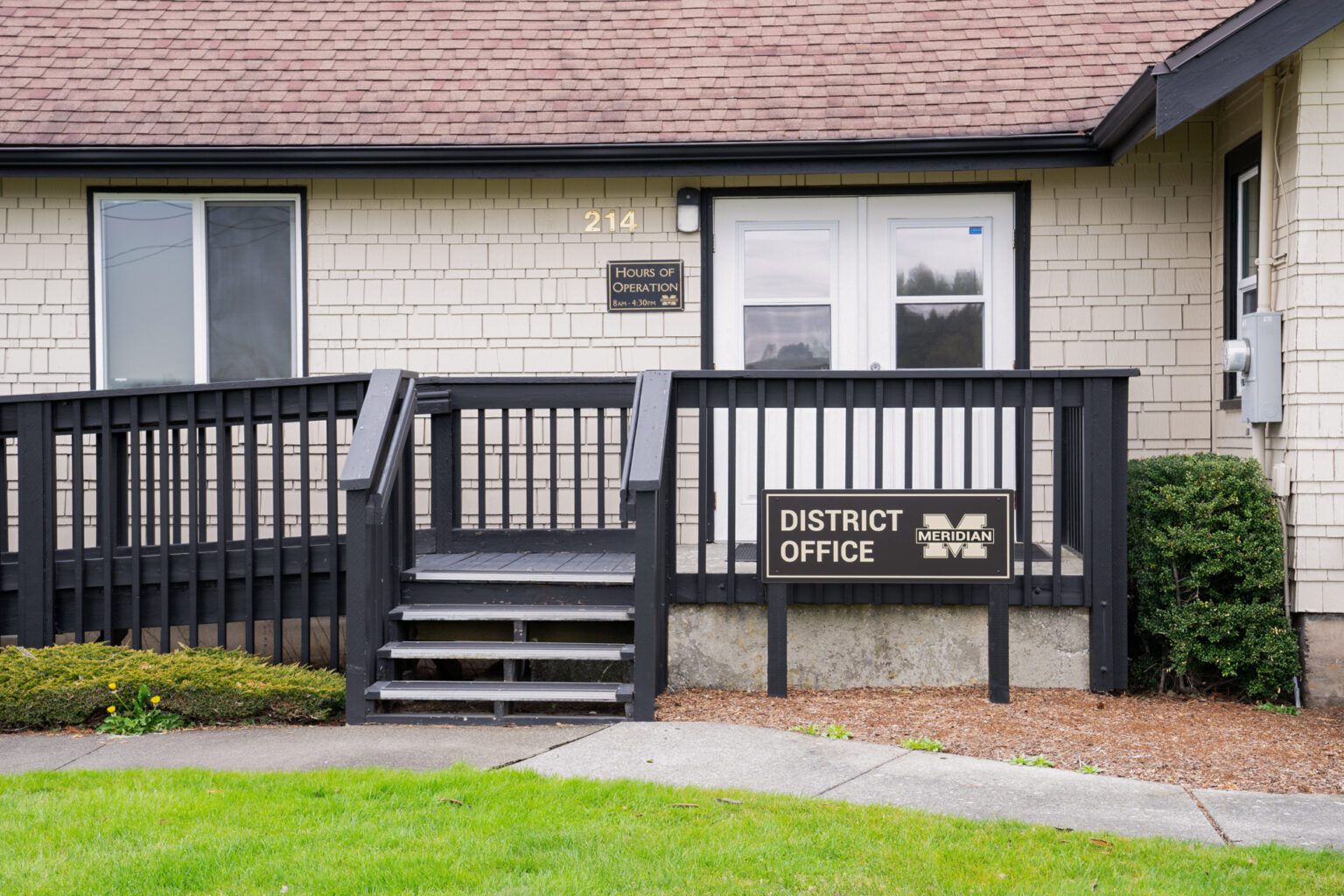Editor’s note: The eligibility status of Meridian High School athlete Jase Klinkhammer remains unknown; he did not compete at a scheduled track meet on Thursday, April 11, but he did compete on Saturday, April 13.
It can’t be easy to run a public school district.
Aside from all the other attendant duties of meeting state and federal mandates and serving as the nation’s largest de facto day care provider, schools also too often find themselves as arbiters of veritable crises involving young folks — sometimes including crimes.
These are life-altering events, trauma minefields in which big, bounding steps have serious consequences.
Granted, and appreciated. But the manner of tiptoeing matters.
Consider: An investigative story by CDN reporter Annie Todd this week detailed the fact that a prominent athlete at Meridian High School has remained on the field for varsity track competition — in spite of being charged with second-degree rape of a 16-year-old girl and second-degree perjury, the latter an apparent attempt to mislead police about the former.
Both are felonies. No matter their adjudicated outcomes, both are likely to change the lives of the accused and the alleged victim, forever.
Like any accusation of a serious crime, CDN approached this story with full knowledge of the gravity of publicizing the events — especially on young people — even though the alleged crimes were documented in public court records.
Some context: CDN doesn’t routinely name people merely suspected, even if arrested, of all the myriad crimes that come through the local justice system. More often, we choose to name suspects, for a crime deemed newsworthy, after formal charges are filed.
Even then, not every charged crime gets reported. An offense is more likely to meet our publication standards if the accused person was involved in a high-profile crime, is viewed as a continuing threat, or the case itself is of public interest for other reasons, including the accountability of a public institution.
The Meridian case fit the latter definition because it presented a critical, unanswered question already being angrily asked in segments of our community: Why was a high school senior (who also happened to be a prominent athlete) allowed to continue to compete — something explicitly deemed a “privilege,” not a right, by schools — even after twin felony charges?
Leaving the issues of guilt, innocence and punishment aside, allowing the athlete to complete seems, at the very least, a recipe for a full-on circus and public spectacle.
Surely, the school district anticipated the blowback: What sort of message does what appears to be inaction send to members of the school community and the public at large?
The school district’s response: Our hands are tied.
Does this sound familiar?
Not surprisingly, Meridian District 505 followed a path that’s become well-worn by public school districts elsewhere: Citing federal privacy laws as a blunt instrument against discussing, even in broad terms, the very notion of possible discipline, or even criminal investigation, of any student, anytime, anywhere. For any reason.
Doing so, their spokesperson argued to CDN, would violate the privacy rights of any involved students. That’s become the 11th Commandment of public educational institutions, all too often allowing walls of public scrutiny to be erected, even around apparent criminal activity.
This newfound Holy Writ of Privacy also was routinely wielded during the recent travails of a neighboring district, Bellingham, amid public tumult over a hazing episode perpetrated by Sehome High School’s football squad.
Bellingham administrators from the beginning refused to discuss details of a hazing incident confirmed by the school. A later investigation by CDN revealed full knowledge of the incident in district offices, including a video viewed by top administrators. The district throughout refused to divulge any possible disciplinary action, beyond a single forfeited football game.
The result, as noted here previously, was a breach in public trust of a valued public institution.
Bellingham deployed a catch-all “privacy” shield so successfully that, while the coach in question was let go after the football season, no student has ever been publicly identified as having been involved in, let alone disciplined for, hazing that would be illegal if it occurred at the university level.
In the process, Bellingham also secured from public view any account of what actually happened, spurring rampant rumors of possible crimes that exceed the most oft-cited accounts to CDN by witnesses and others. While those have differed in minor ways, they universally described acts of forced nudity and humiliation of underclassmen by older students.
Let’s be clear: The right to privacy is important, particularly for minors. But legislation enabling that does not come with an attached pass for public officials to refuse to even discuss matters of significant public concern, while taking legally appropriate steps to redact personal student information. Both things can exist concurrently.
But not here, apparently.
In this case, actual charges
The same dynamics seem to be driving the Meridian case, with one clear difference: The criminal charges, and public knowledge of the accused’s identity, puts even more focus on the school district to act appropriately.
It’s no easy task. But for once, some leadership would be welcomed that goes beyond expediency that reeks of covering one’s own well-paid posterior against even the remote possibility of lawsuits.
The legal system presumably will establish guilt or innocence in Meridian’s rape/perjury case. But Whatcom County prosecutors are not known for ginning up charges they don’t feel are based on solid facts and likely to result in a jury conviction.
What’s left to answer are the public-accountability questions: Did the school district handle the matter appropriately? Did the student get special treatment because of his status as an athlete? Has Meridian followed proper procedures under Title IX rules?
We don’t know, because Meridian schools seems hellbent on respecting the “privacy” of an accused rapist whose identity is already publicly known.
Particularly jarring in the Meridian case is the fact that the student in question, Jase Klinkhammer, was suspended from eligibility by two national athletic governing bodies in the wake of the charges.
Both are bound by stringent reporting and suspension requirements of SafeSport, formed in the wake of rampant abuse of young athletes in Olympic-level sports competition.
While amateur athletics writ large has finally been dragged into the world of accountability long absent in sport, public high schools in charge of even younger, more vulnerable students seem headed, hellbent, in the opposite direction.
Parents, school board members and the broader community would be wise to question that messaging.
The column was updated at 1:17 p.m. Monday, April 15 with additional information about the athlete’s competition eligibility status.
Ron Judd's column appears weekly; ronjudd@cascadiadaily.com; @roncjudd.





